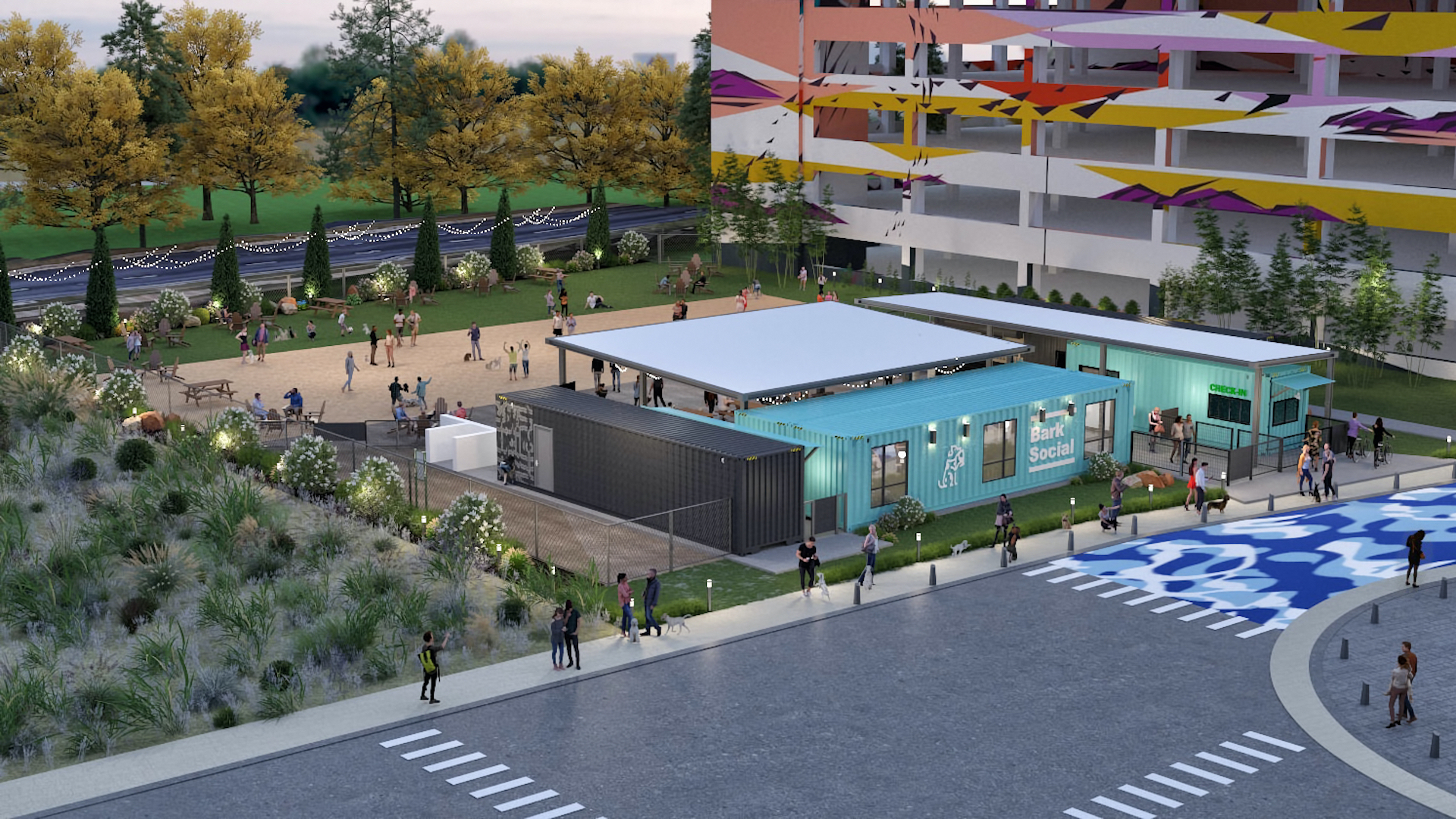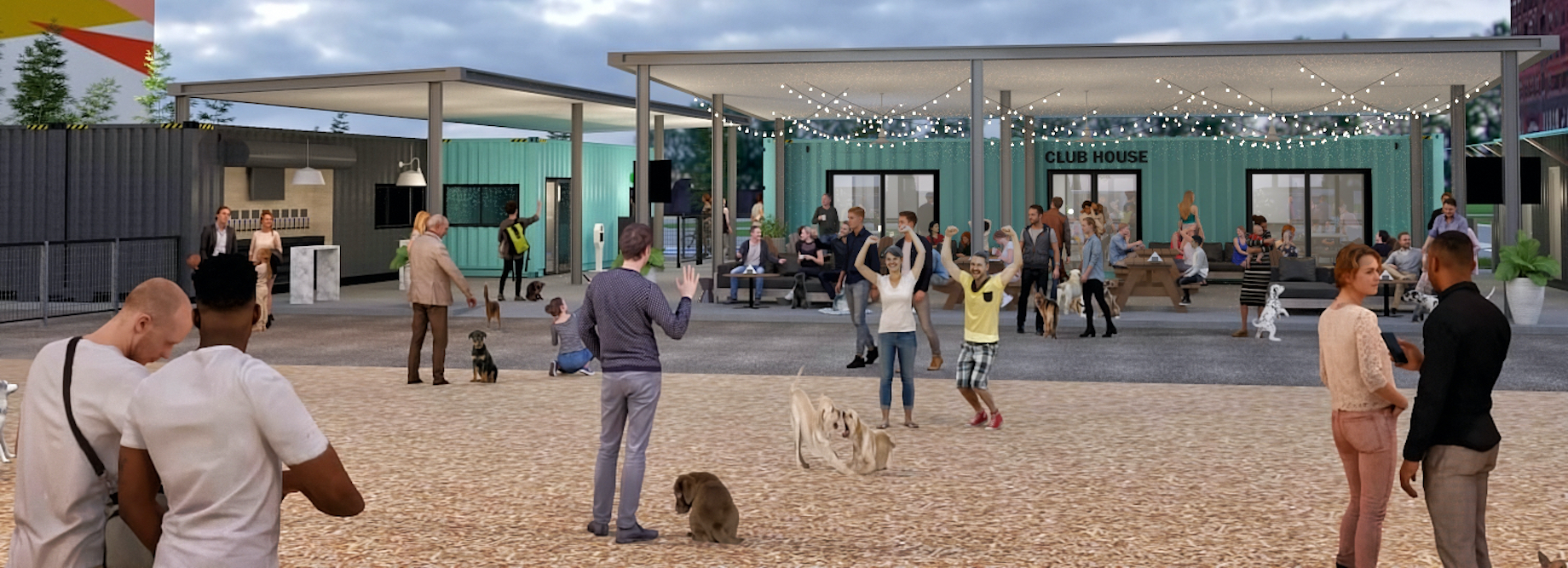New dog park concept Bark Social aims to attract both canines and humans and to help landlords activate outdoor spaces. Co-founders Luke Silverman and Jeff Kurtzman have just inked their first lease at Federal Realty’s Pike & Rose property in North Bethesda, Maryland, and are set to open Sept. 1.
Silverman, who also is CEO, and his pit bull-lab, Frankie, visited more than 20 social dog parks across the country and found one thing missing: Many left out retail. Bark Social thus combines entertainment, food-and-beverage and retail in one venue. The 25,000-square-foot prototype features mainly outdoor play and exercise areas for pets, a 2,400-square-foot open-air pavilion for inclement weather and a 1,200-1,500-square-foot clubhouse, which is part bar and coffee house and part store for dog products. “It doesn’t make the landlord very excited to work with someone who has a very limited type of revenue stream,” Silverman said. “That’s why the retail aspect of this is heavily important in our concept.”

The experience
The dog park and bar/coffee shop make a Bark Social visit experiential, he says, and instead of the traditional, big-box pet store that offers everything under the sun, the store will follow Trader Joe’s model. “We’re creating a brand where our target customers know they are going to get a quality product when they walk into a Bark Social store, whether that is a Bark Social private label or an existing brand,” Silverman said. Most products are made or finished in America. “We’re focusing on working with small businesses that have high touch and high quality,” said Silverman, citing as examples sell dog towels handwoven in North Carolina and Baltimore-manufactured dog treats made from three ingredients or less. Bark Social also launched a website, including e-commerce, this month.
Each dog can access Bark Social via a monthly or annual membership fee, and adult companions come along for free. Membership ensures each dog is current on vaccinations and is spayed or neutered.
Expansion plans
“We have a very strategic and aggressive growth plan not only for the locations but also for the brand, as those two go hand in hand,” said Silverman. The goal is to open at least three locations over the next two years and then accelerate. Ideal locations are urban or densely populated suburban sites. The company is looking at retail and mixed-use venues, as well as ground-up opportunities and vacant restaurant outparcels available for retrofit.
Silverman believes Bark Social will spark interest from landlords in the COVID-19 environment. “In the short [term] and probably the prolonged future, the majority of hospitality and food-and-beverage concepts are going to have to have rely more heavily on outdoor components,” he said.

By Beth Mattson-Teig
Contributor, Commerce + Communities Today


